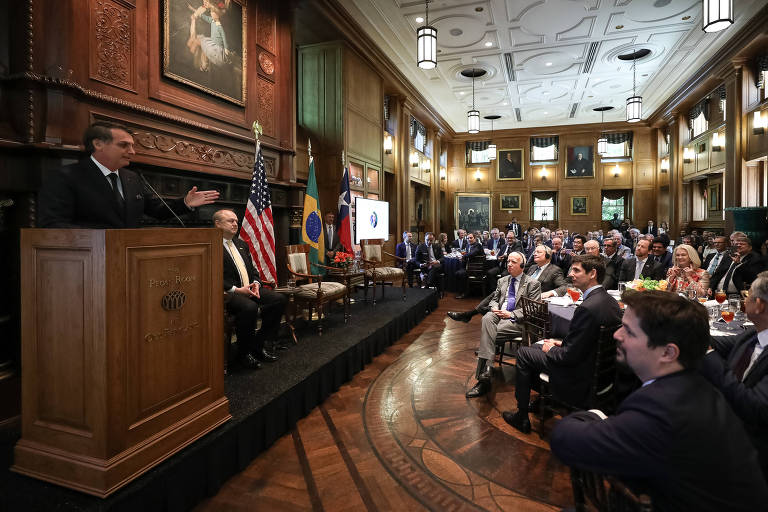Although the Jair Bolsonaro government (PSL) has declared itself pro-American, the USA has not been successful in pressuring Brazil to change its nuclear politics and adopt a posture more aggressive toward Iran.
At the seventh edition of the Bilateral Dialogue of Non-Proliferation and Disarmament, Brazilian authorities and the American assistant secretary of State, Christopher Ford, discussed these issues.
In an interview with Folha de São Paulo, the American appeared optimistic and did not use the term pressure, which was heard on the Brazilian side. “We talked about everything. We are two of the largest democracies in the hemisphere,” he said.
Members of the Brazilian government confirmed the good nature of the meeting, but the agreement stopped there. Ford admitted that Brazil and the USA “certainly have differences,” on Brazil’s adhesion to the 1997 Additional Protocol to the Treaty on the Non-Proliferation of Nuclear Weapons (NPT).
The Treaty says that the International Agency of Atomic Energy can visit not only declared facilities to ensure that nuclear programs are peaceful but also undeclared sites.
In the meeting, Brazilian officials said that the constitution forbids nuclear bombs and there is a bilateral arms agreement framework with former rival Argentina in place since 1994. The American officials have requested a bilateral arms agreement with Brazil for years.
Additionally, Brazil has a fuel production cycle and is developing the nuclear propulsion system for its future submarine. Signing this agreement would place industry technology secrets in the open.
Therefore, Brazil did not join the 132 adherents (out of 189) in the NPT who signed the protocol. Brazil established, in its 2009 National Defense Strategy that the country could only participate if nuclear-powered countries gave up its nuclear weapons. This is really utopian.
Translated by Kiratiana Freelon
